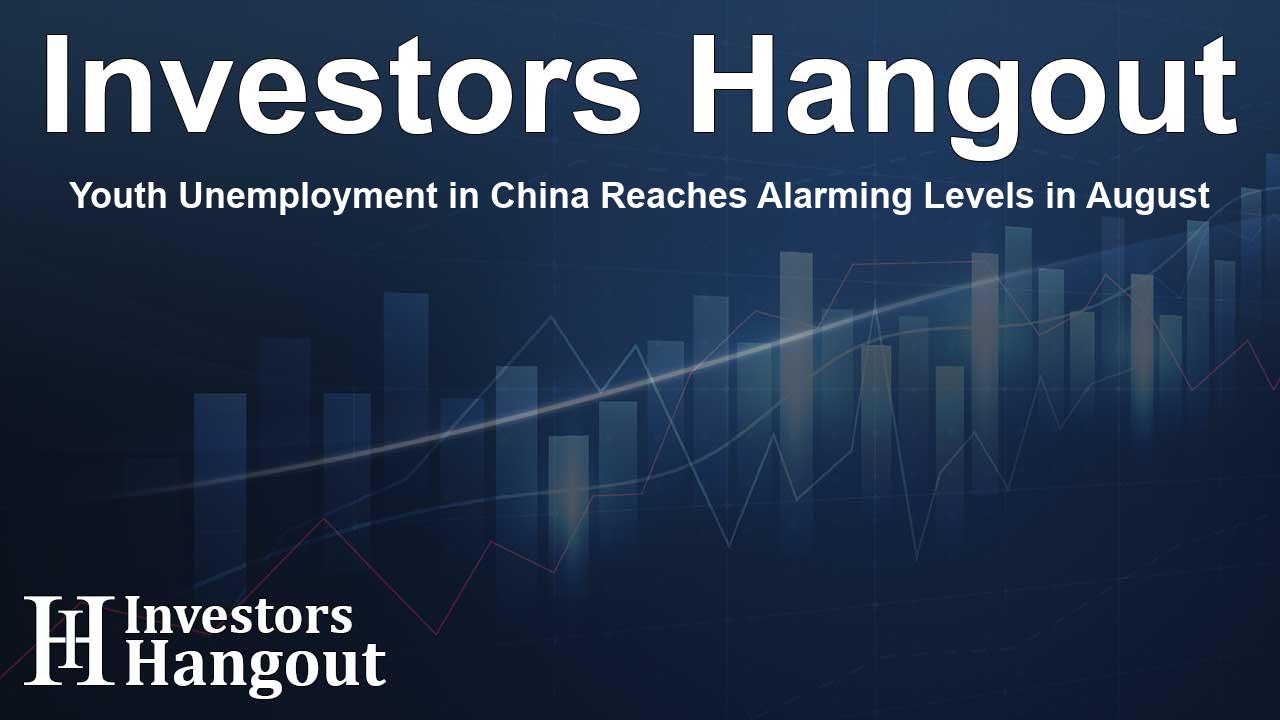Youth Unemployment in China Reaches Alarming Levels in August

Rising Youth Unemployment in China: A Cause for Concern
In recent news, China's youth unemployment rate has surged, reaching alarming levels as recent graduates enter the job market. The latest statistics reveal that the jobless rate for individuals aged 16 to 24 has climbed to 18.8%, up from 17.1% in July. This significant increase poses challenges not only for the youth but also for China’s policymakers, who are under pressure to implement effective strategies to combat this growing issue.
Impacts of the Youth Job Market
The rise in youth unemployment indicates a broader trend affecting the Chinese economy. As new graduates begin their job search, they add to the mounting pressure on the job market. Unfortunately, many of these individuals are left with few options, with some resorting to low-paying jobs or relying on parental support. This scenario is particularly concerning given the record 11.79 million college graduates this year.
The Broader Economic Context
Other economic indicators also suggest that China may face significant obstacles to achieving its annual growth targets, estimated at around 5%. Slower growth momentum was noted in August, with economists worried that lagging employment rates could adversely affect domestic consumption. A stable economy relies heavily on the purchasing power of its citizens, and a high unemployment rate among youth could hinder future economic recovery.
Job Trends among Different Age Groups
It's essential to consider the variations in unemployment rates across different demographics. For instance, the unemployment rate for those aged 25 to 29 rose to 6.9% in August, up from 6.5% the previous month. Conversely, the rate for individuals aged 30 to 59 remained steady at 3.9%, reflecting a stark contrast in employment stability between younger and older generations.
The Response from Policymakers
With the increasing rates of unemployment among youth, there is a growing call for systemic reforms targeting job creation and support. Policymakers must consider innovative approaches to foster job opportunities, particularly for new graduates entering a competitive job market. Addressing the unique challenges faced by younger workers is vital for the long-term economic health of the nation.
Challenges for the Financial Sector
The finance industry has also felt the pressure of these rising unemployment levels. Reports indicate that some white-collar workers are experiencing pay cuts, which could exacerbate the already weak domestic consumption patterns. Such developments underline the interconnectedness of employment trends across various sectors and the urgent need for a coordinated policy response.
Looking Ahead
The current state of youth unemployment in China poses several questions about the future of the job market and economic stability. As the nation grapples with high unemployment rates, particularly among its younger population, stakeholders must collaborate on solutions that not only address immediate challenges but also pave the way for sustainable growth. With the right policies in place, there is hope for a positive shift in the employment landscape.
Frequently Asked Questions
What is the youth unemployment rate in China for August?
The youth unemployment rate reached 18.8% for those aged 16 to 24 in August.
How does the youth unemployment rate impact the economy?
A high youth unemployment rate can lead to decreased consumer spending and slow economic growth.
What measures can be taken to address youth unemployment?
Policymakers can implement job creation programs and support services to help recent graduates transition into the workforce.
Are there differences in unemployment rates among various age groups?
Yes, the unemployment rate for those aged 25 to 29 is 6.9%, while for those aged 30 to 59, it is 3.9%.
What challenges do young graduates face in finding jobs?
Many recent graduates are forced to accept low-paying jobs or rely on family support due to a competitive job market.
About Investors Hangout
Investors Hangout is a leading online stock forum for financial discussion and learning, offering a wide range of free tools and resources. It draws in traders of all levels, who exchange market knowledge, investigate trading tactics, and keep an eye on industry developments in real time. Featuring financial articles, stock message boards, quotes, charts, company profiles, and live news updates. Through cooperative learning and a wealth of informational resources, it helps users from novices creating their first portfolios to experts honing their techniques. Join Investors Hangout today: https://investorshangout.com/
Disclaimer: The content of this article is solely for general informational purposes only; it does not represent legal, financial, or investment advice. Investors Hangout does not offer financial advice; the author is not a licensed financial advisor. Consult a qualified advisor before making any financial or investment decisions based on this article. The author's interpretation of publicly available data shapes the opinions presented here; as a result, they should not be taken as advice to purchase, sell, or hold any securities mentioned or any other investments. The author does not guarantee the accuracy, completeness, or timeliness of any material, providing it "as is." Information and market conditions may change; past performance is not indicative of future outcomes. If any of the material offered here is inaccurate, please contact us for corrections.